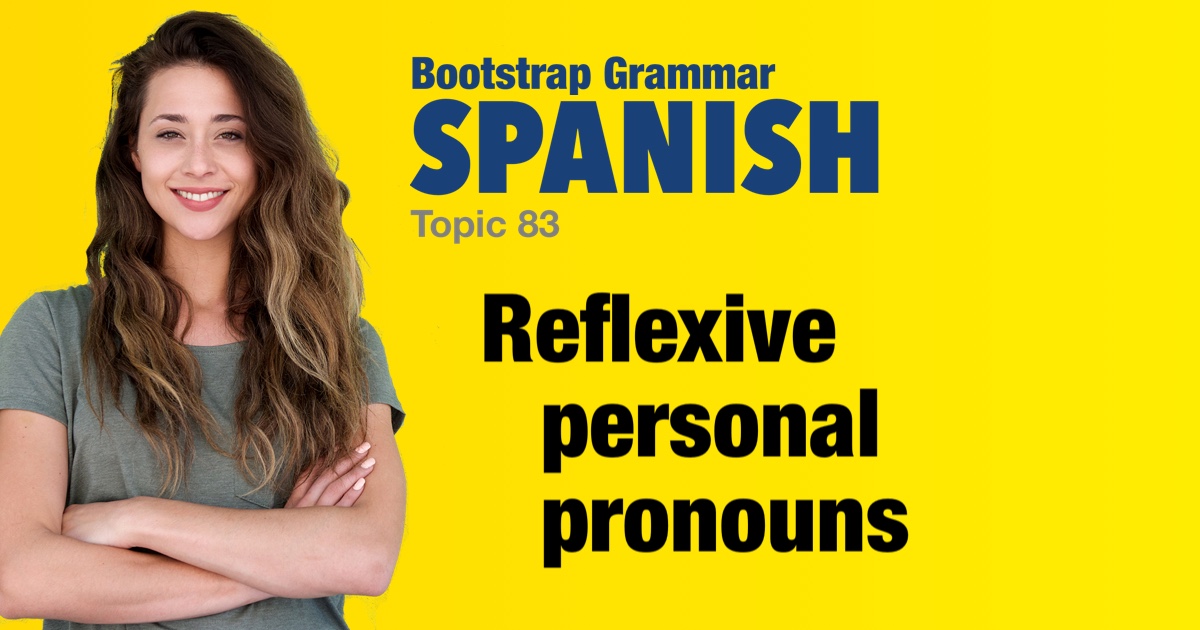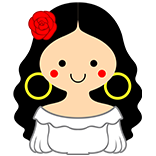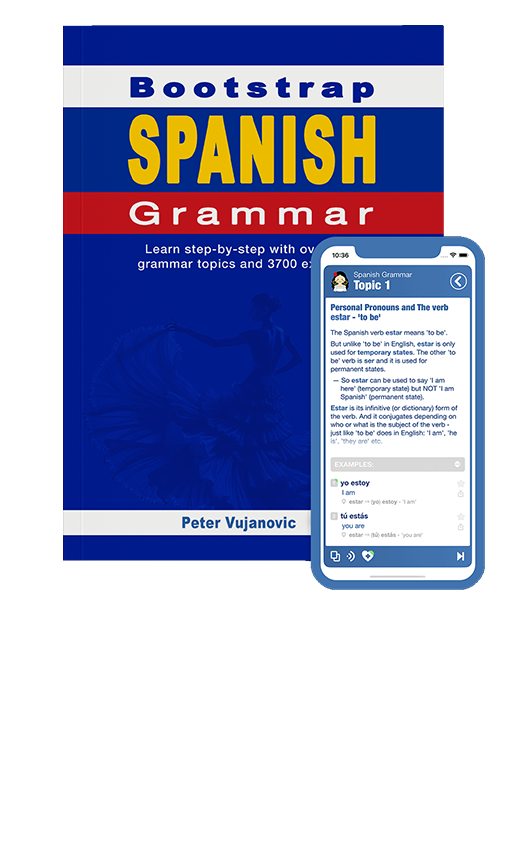Spanish grammar - Reflexive personal pronouns |
|||
|
|||
In Spanish, reflexive pronouns indicate that the subject of the verb is performing the action on itself. -- In English, the reflexive pronouns are 'myself', 'yourself' etc. and are used in the same way - for example 'I wash myself.' The reflexive pronouns are as follows: • yo ⇒ me : 'myself' • tú ⇒ te : 'yourself' (familiar) • él, ella, usted ⇒ se : 'himself', 'herself', 'yourself' (formal) • nosotros, nosotras ⇒ nos : 'ourselves' • vosotros, vosotras ⇒ os : 'yourselves' (informal, plural) • ellos, ellas, ustedes ⇒ se : 'themselves', 'yourselves' (formal) In Spanish, these reflexive pronouns do not contract but are placed immediately before the conjugated verb. |
| Examples: | |
|
Ella se lava.
She washes herself.
|
|
|
Tú te miras en el espejo.
You (familiar) look at yourself in the mirror.
|
|
|
Ella se prepara para la reunión.
She gets ready (prepares herself) for the meeting.
|
|
|
Yo me escondo detrás de la puerta.
I hide (myself) behind the door.
|
|
|
Me miro en el espejo.
I look at myself in the mirror.
|
|
|
Te preguntas si es correcto.
(You) ask yourself if it is right.
|
|
|
Te ves en la foto.
(You) see yourself in the photo.
|
|
|
Se pregunta si está bien.
(He) asks himself if it is right.
|
|
|
Nos encontramos en el parque.
(We) find ourselves in the park.
|
|
|
Os preparáis para el examen.
(You all) prepare yourselves for the exam.
|
|
|
Me cuido.
(I) take care of myself.
|
|
|
Te ves en el espejo.
(You) see yourself in the mirror.
|
|
|
Se defiende bien.
(He) defends himself well.
|
|
|
Vosotros os vestís rápido.
You (plural, informal) dress yourselves quickly.
|
|
 |
|


 ella ⇒ se
ella ⇒ se
